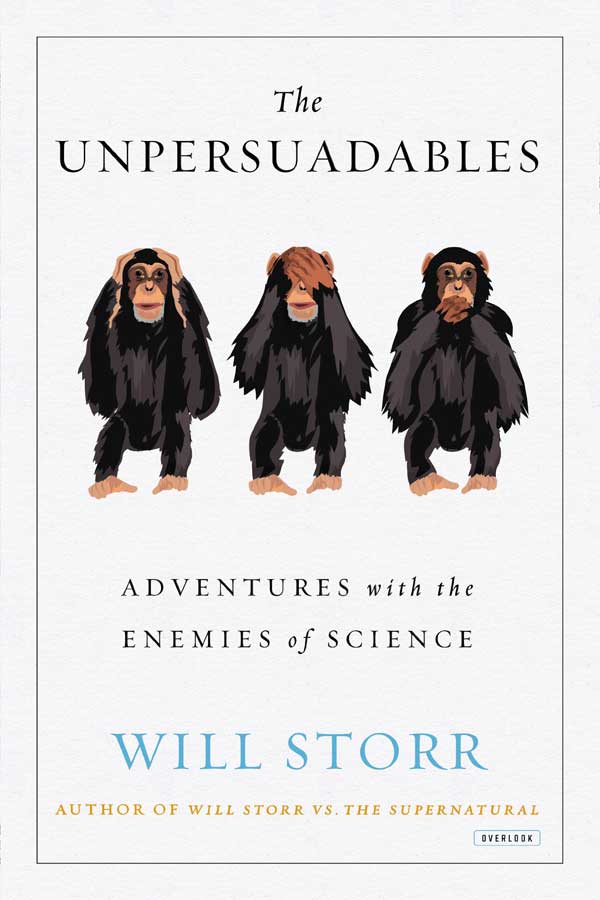The truth is “Unpersuadable”
“The Unpersuadables” by Will Storr
It all comes down to our stories, and whether we want to hold our hands fisted in the world or keep them open. In this work of nonfiction, Will Storr shows us how easily we construct unshakeable beliefs about ourselves and our world that are often wrong or limiting. Storr speaks with creationists who negate evolution, ghost hunters and UFO experts, yoga masters and the breath that heals, and past-life regression therapists. He interviews homeopaths, schizophrenics and the voices they hear in their heads,
Holocaust deniers, and climate change naysayers. And he delves into whether or not memory is trustworthy. At each point in his journey toward how we understand truth, Storr introduces contrasting views, many scientific, some historical.
Though it is rare that his cast of characters change their minds even when they are confronted with hard science or historical facts, Storr discovers that what people believe or don’t believe is not the point. The point is the story, and how we define ourselves and our world by what we tell. We create internal models of what is out in the world and what is inside us, and build on these models as we experience cause and effect in our daily lives. And our changing models guide what we consider to be “true.” Since we are center of the models we create, we are the hero in every story that our brain designs. Why then would we disagree with ourselves?
“The Unpersuadables” is a compilation of new chapters and chapters from previous work. Because of this arrangement, sometimes it is difficult to follow the skips that Storr makes from belief to belief. And some of his chapters are so wordy that it is a challenge to follow his train of thought. At the same time, Storr’s discussions regarding our brain’s capacity to generate stories and how we defend them, and his premise that we live in two worlds—one physical and one narrative—offers a new view of humanity and a spotlight on the hero archetype. Though Storr starts out with his own hands fisted and firmly entrenched in the camp of science, he’s curious enough to explore the minds of people whose hands are both open and closed.
“The Unpersuadables” is a reminder that we must all recognize our bias, and then consciously unclench our fists, so that other stories but ours make their way into how we think.






